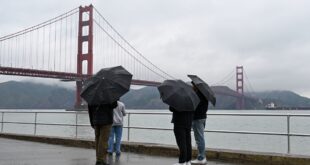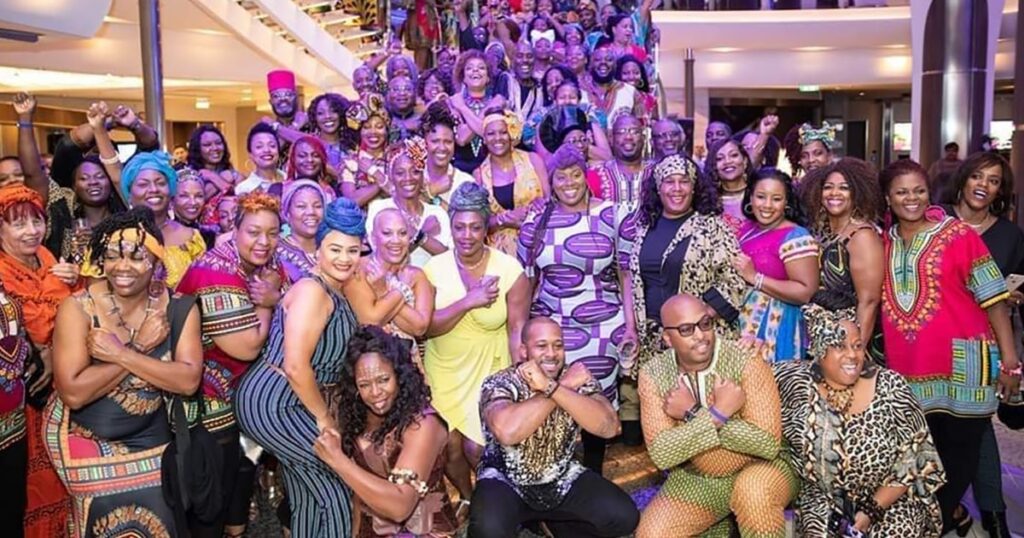
Patricka Hogue’s friends were already calling her “the nomad.” While she had visited dozens of countries (at the latest count, at least 60), by 2012 she yearned for a community of Black fellow travelers she could share her traveling experiences with.
That was when she stumbled upon the Nomadness Travel Tribe, a Facebook group, now with 37,000 members.
“I literally found my tribe,” she said.

Hogue and thousands of other Black travelers have built communities — online and off — centered on globetrotting. While they share restaurant recommendations and envy-inducing photos, many members say the groups have instilled lasting friendships and led to marriages. In the worst cases, the groups have sprung to action in times of crisis. At its core, the groups encourage more Black people to experience the world — only 49% of Black Americans have traveled abroad, compared with 75% of white Americans, according to 2021 data from the Pew Research Center.
Nomadness Travel Tribe’s founder, Evita Robinson, who has traveled to about 40 countries, said she launched the group in 2011 with only 100 members to fulfill her own need to find a Black traveling community — and it grew fast. Beyond connecting as an online community for travelers, members of Nomadness and others often coordinate smaller group trips outside their online communities.
“It was beautiful to kind of see these folks, particularly millennial Black and brown travelers, kind of come together in a home online and then adventure into something that lived offline,” said Robinson, who is 40 and lives in Newark, New Jersey.
A cultural awakening
Hogue said joining has had “such a huge impact on my life.”
After having temporarily lived in South Korea, Hogue returned to her home city, New Orleans, in 2013 and felt “like such a fish out of water” after years of traveling. Since she joined Nomadness, she has traveled with members on five group trips, including a trip to India in March 2015, one of her favorites. Members were given custom saris, visited the Taj Mahal and attended Holi, a Hindu festival celebrating love and rebirth.
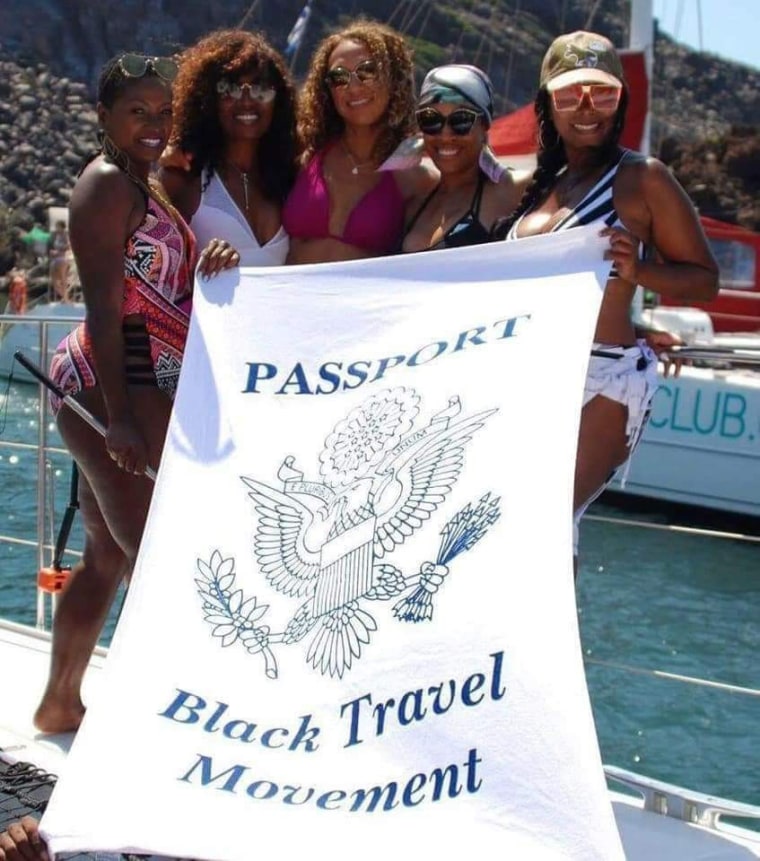
“Finding this online community of fellow travelers and people that also had, like, almost an insatiable curiosity about the world, it was such a breath of fresh air,” said Hogue, 43. “I didn’t feel like I was that strange.”
Robinson said she launched Nomadness to help break down racial, socioeconomic and religious barriers to global travel. Before social media, international travel was seen strictly as a luxury, she said, and many Black people grew up with sentiments such as “Black people don’t go there.” But the emergence of companies like Lyft and Airbnb has made travel accessible for more people, she said.
One way Robinson makes her trips accessible to travelers is by offering payment plans. Nomadness trips on average cost between $2,000 to $3,500, before flights.
Hogue’s 2015 trip to India with Nomadness cost her $410, which included accommodations, meals and several activities, she said. Hogue said the organization’s affordable prices allowed her to visit places like Bali, Costa Rica and South Africa.
In the Nomadness group, members share flight delays and trip recommendation requests. They also post photos of food and excursions and even updates about the new countries they’re living in. Members also ask one another for advice about what countries are safe to travel to; right now members are favoring Japan, Portugal and South Africa.
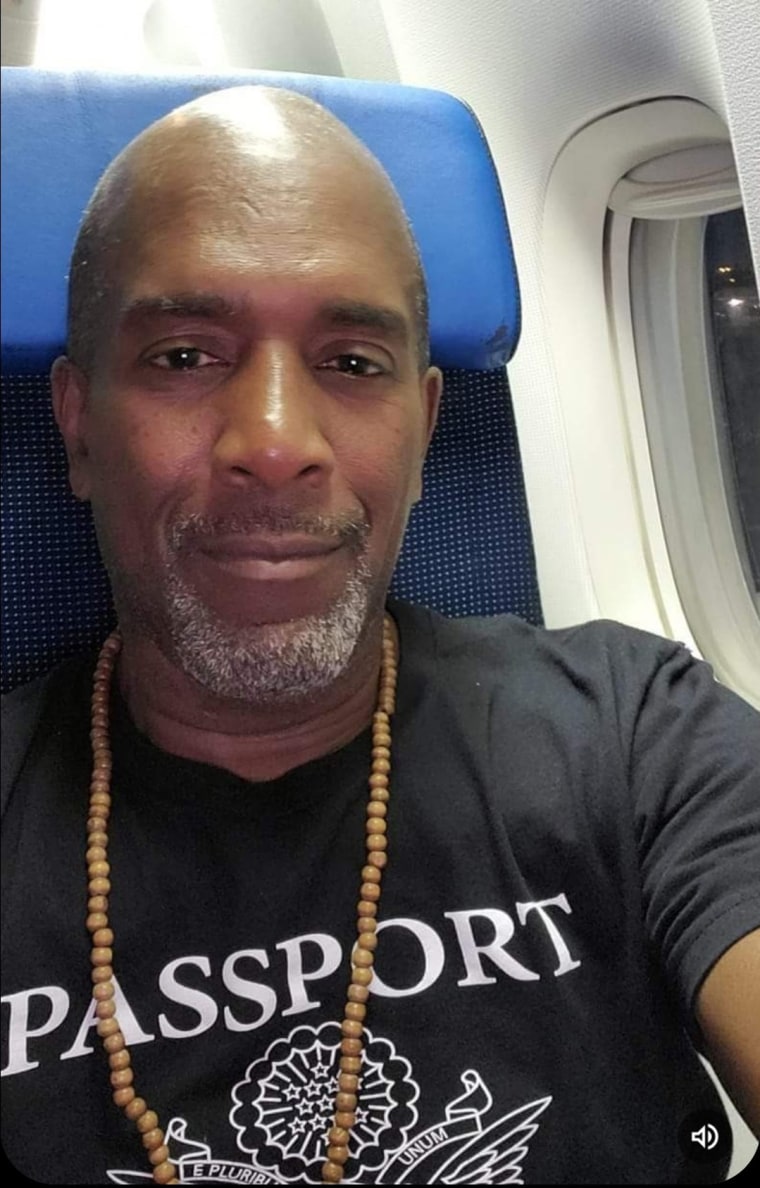
In 2016, Reggie Cummings, a member of the National Brotherhood of Skiers, went on a skiing trip in Japan. While the group expected no more than 12 people, about 180 showed up, which resulted in “literally the best week of my life,” said Cummings, who is from Atlanta. Shortly afterward, he started “The Black Travel Movement,” which now has over 539,000 members on Facebook.
“The platform was created so that we can both tell our story and hear stories from other cultures,” Cummings said. His latest post in the Black Travel Movement group is a check-in for members who are traveling to Havana with the organization. Other members of the group often share photos of their favorite international travel destinations and request restaurant recommendations for trips within the United States.
Trips with the Black Travel Movement range from $2,500 to $4,500, depending on the destination, Cummings said. Some popular places include Ghana, whose “Year of Return” in 2019 commemorated 400 years since the first group of African slaves arrived in Virginia. The yearlong program encouraged many African Americans to visit; it was so popular that some travelers moved to Ghana.
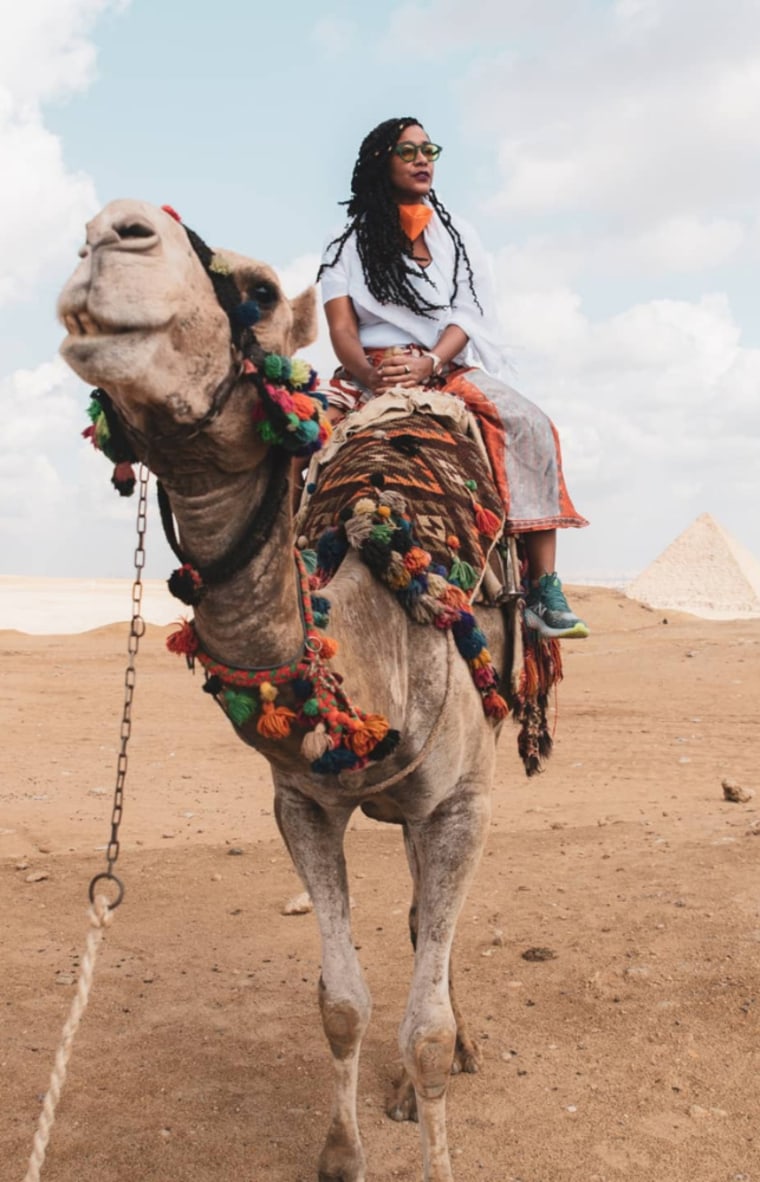
In terms of excursions, Robinson said, “it’s all about cultural immersion” for Black travelers, especially those traveling to Africa. Visitors dine at local restaurants and shop at local stores, all of which helps support the local community.
“I think this is why Africa is poppin’, because people are realizing … it’s not all safaris out here the way that we’ve been pitched our entire lives,” Robinson said. “There’s parties. There’s arts. There’s collective. There’s ways to give back and volunteer. All of that is in the scope of interest of us as travelers.”
The power of community
Nomadness members have experienced their fair share of unexpected challenges abroad. But when bad things happen, “we show up when s–t hits the fan, literally,” Robinson said.
In 2015 a group of Nomadness members visiting a region outside Panama City were involved in a van accident. Multiple people were injured, and two members died. Within four days, Nomadness members had raised tens of thousands of dollars to help pay for hospital bills of the injured members and help others get back to the United States.
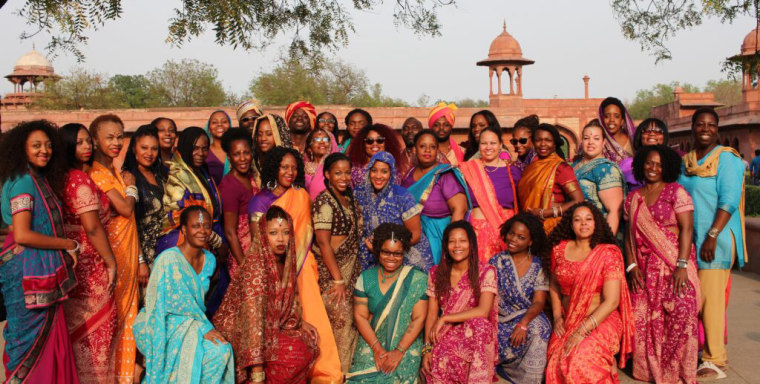
The community “came together unlike anything I’d ever seen,” Robinson said. While the trip wasn’t officially hosted by Nomadness, Robinson flew to Panama with two other members because “these were our people and they needed our help.”
“We show up for one another,” Robinson said. “This isn’t just some social thing you’ve seen on social media. We are tangible in real life.”
Tushunda Wright, 42, a community engagement lead for Nomadness, said: “You’d be surprised how many times we’ve saved each other during difficult times. Not just dealing with racism, but also, you know, whether somebody lost a passport [or] got robbed.”
For the last five years, the annual Nomadness Fest has played host to as many as 600 travelers of color, discussing a variety of topics, including LGBTQ travel representation and accessibility. Two major focuses of the group this year are storytelling and data aggregation for travelers of color.
“Nomadness has been the root of so many friendships, relationships, marriages, businesses,” Hogue said. That, she added, is the epitome of Black joy.
 Latest World Breaking News Online News Portal
Latest World Breaking News Online News Portal


